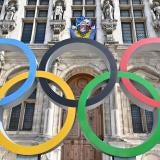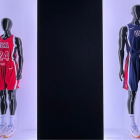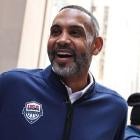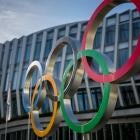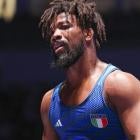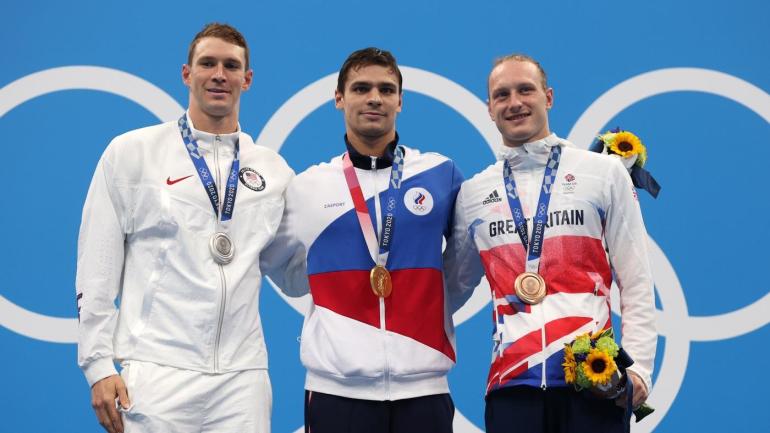
Within the grimy underbelly of international competitions exist doping scandals. There's also almost always animosities towards nations that find themselves wrapped up in those doping scandals. This underbelly has long been occupied by Russia, which has athletes participating in the Tokyo Olympics under the "Russian Olympic Committee" (ROC) banner.
After years of state-sponsored doping scandals by Russian athletes, Russia was issued a four-year ban from the Olympics (later reduced to two) that prevented them from sending athletes to the Olympics under their national banner. In the Tokyo Games, just over 300 athletes are representing the ROC.
Whether or not said athletes are operating within the boundaries of the game's rules was called into question after Thursday's swimming competitions.
After Russia's Evgeny Rylov won the men's 200-meter backstroke, American swimmer Ryan Murphy did not shy away from questioning the integrity of the competition. Murphy, who finished seconded in the race, expressed concerns about doping and seemingly implied foul play on Rylov's part.
Here is what Murphy said, via USA Today:
"It is a huge mental drain on me … that I'm swimming in a race that's probably not clean. It frustrates me, but I have to swim the field that's next to me. I don't have the bandwidth to train for the Olympics at a very high level and try to lobby the people who are making the decisions that they're making the wrong decisions."
Murphy is not the only athlete who has questioned the integrity of the ROC and its athletes at the Tokyo Olympics.
Great Britain's Luke Greenbank, who finished third behind Rylov and Murphy, also expressed concerns about Russian athletes competing, despite doping scandals and the Olympic Committee's apparent lack of action towards it.
"It's frustrating knowing there's a state-sponsored doping program going on and not more being done to tackle that," Greenbank said, according to USA Today.
But the complaints are not limited to swimming. The integrity of Russian athletes was also called into question in other arenas, such as when U.S. rower Megan Kalmoe tweeted that the Russian crew of Vasilisa Stepanova and Elena Oriabinskaia "shouldn't even be here" after they won silver in the A Final.
In response to criticism levied towards them and their athletes, the ROC issued a statement on Friday calling such allegations "English-language propaganda, oozing verbal sweat in the Tokyo heat ... Through the mouths of athletes offended by defeats."
Как же нервируют наши победы отдельных коллег по цеху. Да, мы здесь, на Олимпийских играх. Абсолютно по праву. Нравится это кому-то или нет.
— Olympic Russia (@Olympic_Russia) July 30, 2021
А вот проигрывать надо уметь. Но не всем это дано. Старая шарманка снова затянула песнь о русском допинге. Кто-то усердно крутит ручку➡️ pic.twitter.com/1OgizY5cK0
"How badly our victories unnerve our colleagues " read a tweet by the ROC (translated from Russian). "Yes, we are here at the Olympics. Absolutely right. Whether someone likes it or not. But you have to be able to lose. But not everyone is given this. The old hurdy-gurdy again started the song about Russian doping. Someone is twisting the handle diligently.
"... We will not console you. Forgive those who are weaker. God is their judge. And for us - an assistant."
According to Rachel Axon of USA Today, multiple investigations by the World Anti-Doping Agency (WADA) since 2014 have found that state-sponsored doping programs in Russia involved more than 1,000 athletes across 30 sports during a time period from 2011 to 2015. The WADA ruled that Russia had subverted anti-doping protocols in two Olympics, such as when they used a hole in the wall to swap out dirty urine samples for clean ones at the Sochi Olympics.
While WADA asked for a four-year ban for Russia, the Court of Arbitration for Sport ended up reducing that ban to two years. Even so, the "ban" on Russia is largely in name only, as the Russian Olympic Committee fields each Olympic team representing the nation.
As for Rylov, the 24-year old swimmer from Novotroitsk defended himself in a news conference, stating that he has always been for clean competition.
"From the bottom of my heart, I am for clean sport. … Ryan didn't accuse me of anything, so I'd rather not comment," Rylov said.











